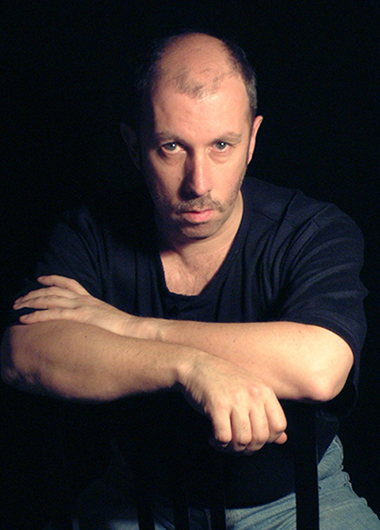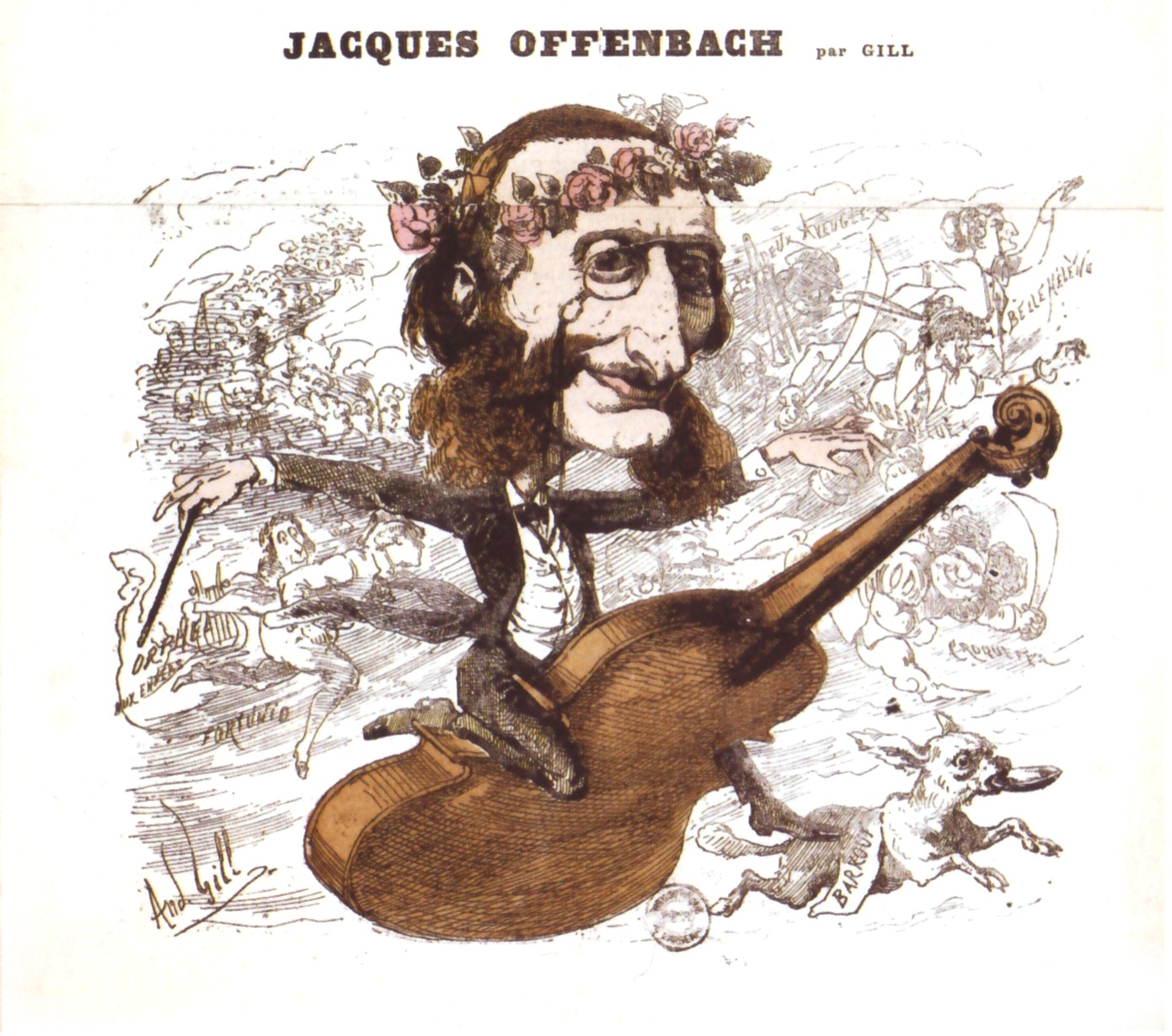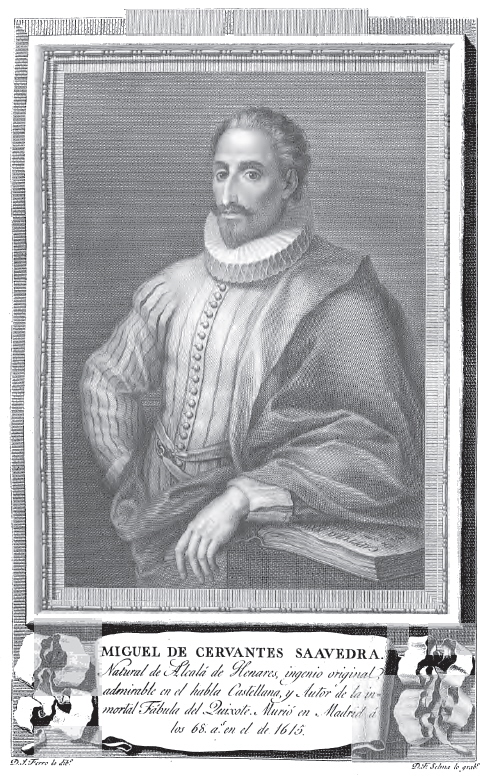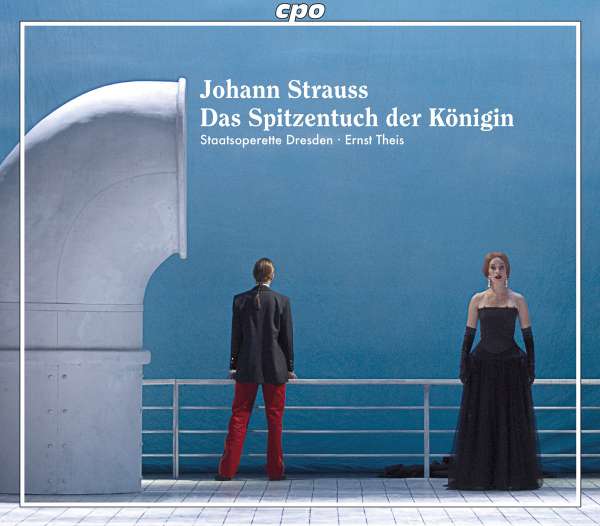Kevin Clarke
Operetta Research Center
25 April, 2017
An interview with Jeff Clarke, artistic director of Opera della Luna, about the company’s planned new production of Johann Strauss’s forgotten Das Spitzentuch der Königin – The Queen’s Lace Handkerchief. The operetta originally premiered in 1880 in Vienna at the Theater an der Wien, it is based on a libretto by Heinrich Bohrmann-Riegen and Richard Genée. The famous waltz Rosen aus dem Süden op. 388 is based on tunes from this operetta which the Staatsoperette Dresden resurrected in 2007 with a German language production. Is it time for the show to conquer the English speaking world too?

Operetta director Jeff Clarke. (Photo: Opera della Luna)
After exploring various French operettas by Jacques Offenbach, why are you are now turning your attention to Johann Strauss II?
Firstly “varying the diet”. For a while Opera della Luna appeared to be performing only Gilbert and Sullivan, but more recently three of our last four productions have been Offenbach. It’s time to look at another vein of operetta. Last year our experience with the Offenbach double bill (Croquefer and Tulipatan) proved a number of things: firstly, that just because a work isn’t known doesn’t mean it’s not capable of creating a memorable evening in the theatre. Secondly, that our audiences are loyal and will come and see us even if they haven’t heard of the work we are performing. It’s taken twenty years to achieve this, but at last it gives us the freedom to really explore interesting territory. Moreover, it’s possibly the case that in London, there is even more interest in coming to an unknown work than in seeing something like Fledermaus or Merry Widow which appear reasonably regular on other stages.
Because of the annual New Year’s Concert from Vienna, Strauss has a very gilded – and stuffy – image. How does Strauss compare with cheeky and subversive Offenbach for you?
I am still exploring! (laughs) You are right that the image projected by those regimented formal concerts is maybe not an accurate re-creation of the real Strauss. In the same way that Offenbach’s music has come to be associated with something he never knew (all that Moulin Rouge frilly frocks frou-frou nonsense), I wonder whether the stiff formality of the Musikverein is equally misleading. If I am honest I am not yet totally au fait with the world of 1880s Vienna. I know that Offenbach was as successful in Vienna as he was in Paris and that the Viennese appetite for operetta was equally fervid. As I explore Das Spitzentuch it suggests to me that it has a fairly subversive political agenda, and whilst no-one is as off-the-wall as Offenbach, there is potential for some fairly crazy stuff in it.

Jacques Offenbach riding his success, a caricature from a Paris newspaper.
Most operetta fans know Fledermaus and Zigeunerbaron by Strauss, maybe even Eine Nacht in Venedig. His 1880 operette Spitzentuch is completely forgotten today. What is this show about? And why did it attract your attention?
It attracted my attention because I heard the Dresden Staatsoperette recording and immediately loved its score. For me, I love that feeling of happy discovery when one hears a melody one knows well, without having ever known its original provenance. Das Spitzentuch has many great Strauss tunes in its score.

Miguel de Cervantes Saavedra as portrayed in “Retratos de Españoles Ilustres,” 1791.
The show purports to be about the court of 16th century Portugal and the clash between the writer Cervantes, author of Don Quixote, and the Prime Minister (Villa-Lobos) who is acting as Regent for the young immature King. Both the King and his young Queen hold adulterous desires for others, and in the case of the Queen, a message to the amorous Cervantes, written on her handkerchief almost proves her undoing. What I believe the show is actually about is the Austrian court of the 1880s, with the young King clearly representing the young Crown Prince Rudolf. Many longed for the Emperor Franz-Josef to relax his ultra-conservative views. Rudolf espoused many enlightened liberal principles but was allowed little freedom to implement them by his unyielding father. His soon-unhappy marriage to Princess Stephanie of Belgium was regrettable and the root of his many scandalous affairs with young semi-aristocratic women. No-one in 1880 could have foreseen the tragic conclusion of Rudolf’s career when in 1889 he shot his lover Mary Vetsera before killing himself, in a suicide pact at his hunting lodge at Mayerling.
That the operetta should receive any performances at all after that event is surprising, but it continued to be performed into the 20th century.
I suspect an English audience today will know no more about Crown Prince Rudolf and Mayerling than it does about 16th century Portugal; so really, the piece is about the clash of liberal progressive thinking against ultra conservatism; about always embracing the politics of the young and not looking backwards. And it is about censorship. The Prime Minister is determined to imprison Cervantes for his subversive writing and for ridiculing the government. The young King defends Cervantes because his words make him laugh, and he realizes the importance of laughter and preserving a sense of humour. Recent issues with Charlie Hebdo, and current politics in Turkey have obvious relevance. Since the attempted coup in July 2016, President Tayyip Erdogan of Turkey has arrested hundreds of journalists, closed or taken over dozens of media outlets, and prevented journalists and their families from travelling. By some accounts, Turkey currently accounts for one-third of all journalists imprisoned around the world.
Like many Strauss operettas, this is a very “juicy” one: it’s about the sex life of the Royals, from erection problems to marital infidelity. Do you plan to emphasize the libidinous side of operetta in your production?
I often really don’t know what’s going to come out of a production till we get into the rehearsal room. So many things in the past have come out of our collective work on the piece. Undoubtedly there is a strong element of sexual predatoriness in the show; both the King and Queen are strongly attracted to their various would-be lovers, and everybody (virtually) uses sexual attraction as a bargaining ploy in their political maneuvering.
I think a British audience might be surprised at the fact that a Johann Strauss operetta deals with these issues, but I don’t think they will be shocked.
Can one hear the “sex” in the music? How would you describe the Strauss score?
Well, it may seem facile to say so, but the one word to describe the score is Viennese. For this reason I cannot reconcile myself to set the production in 16th century Portugal. I have no problem accepting that Orphee aux Enfers is set in classical Greece, or that The Yeomen of the Guard is set in Tudor England, even though both scores are inescapably 19th century; but Viennese waltzes somehow don’t work for me with a 16th century setting. Perhaps that’s my lack of imagination!
I’m not sure about hearing the “sex”. Certainly not in the Rosenkavalier way. But what one does hear is boundless energy, and fizz – and that’s sexy enough for me.
Spitzentuch was recently revived in Germany by the Staatsoperette Dresden. There even is a recording. How much did that revival influence your decision to perform Spitzentuch? What do you plan to do differently than the Staatsoperette?
As I mentioned above, without the Dresden recording I would never have discovered the show. Years ago in an old second hand music shop I bought a score of Strauss’s operetta Queen Indigo. It is far from being his best piece, but it did alert me to the fact that there is a stack of forgotten works here. I have always looked out for productions of less familiar Strauss, and to discover the Dresden recordings of a number of them was a joy. Das Spitzentuch was immediately the most appealing.

The cpo release of “Spitzentuch der Königin,” 2008.
Where our production differs from the Dresden one, is that theirs used the very scholarly new Vienna Johann Strauss edition as its source, whereas ours is based on the New York Production of 1882. Although the show was never performed in London, an English version opened the newly built Casino Theater in New York where it ran for 130 performances. The Casino became for a while New York’s operetta house, and the show then went on the road and toured the USA with great success for over two years. The archive of one of the companies that performed it is now housed in the library of the University of Wisconsin at Madison, and my version is based on one of the four English versions of the show in that collection. So far I have worked from digitally produced scans of prompt-books etc, but some of the materials are too fragile to be scanned and so I am going out there next month to examine the whole collection. We have commissioned a new arrangement for small orchestral ensemble which is based on the band parts in this collection, and on the manuscript orchestral score of the show which is now held in the Library of Congress in Washington DC.

The Casino Theatre in New York, around 1900.
The 1882 English translation is good in that it is very accurate to the original German, but poor in its word-setting, and archaic in its language. I am producing a new English version, using that as a base where it is good, but allowing myself much freedom to be more creative in the spirit of the original. It is an oft-read claim that Strauss operettas failed because they had poor libretti. I believe the elements of the Spitzentuch plot are strong, but may benefit from some re-working
In terms of international success, Strauss in the 19th century ranked after Offenbach, Suppé and even Hervé; certainly in London. Will you tackle these operetta composers too, i.e. Suppé and his Boccaccio or Hervé?
I’ve listened to Boccaccio; I’m not sure I don’t prefer Die Schone Galatée. Last year I saw Compagnie les Brigands’ wonderful production of Les Chevaliers de la Table Ronde, which was my first introduction to Hervé. Who knows what the future holds, and what pieces will rise to the top of the bucket list….. ! I have a feeling, not sure why, that the next one might be American…
What kind of singers will you engage for Spitzentuch, and what kind of singers do you think can adequately perform Spitzentuch today? Are you taking the Vienna Philharmonic or Staatsoperetten route, or are you choosing a different path?
I am choosing the Opera della Luna route! Well, I would say that wouldn’t I? (laughs) You certainly won’t find much of the Vienna Philharmonic – although we have a cracking small orchestra! I have always been aware that both Sullivan and Offenbach wrote for singing actors not opera singers and I have always endorsed that distinction. I am not sure the same is true of Strauss. My impression is that even the comedy character roles need to be really well sung. But of course, they still have to deliver dialogue, – and be funny; and to be funny they have to be truthful. Such artists are always hard to find, and I am fortunate in having in Toby Purser a conductor who is aware of those demands, and will not insist on having the best voices at the expense of acting skills. Ultimately, after twenty three years, Opera della Luna has developed a very clear house style. I have no doubt that this will turn out to be very much our version of Das Spitzentuch.
When will your production premiere and where? Will there be an English language recording?
The first performance will be at The Roxburgh Theatre, at Stowe in Buckinghamshire on July 21. This is our local summer venue, and there will be only one performance, principally to thank, and show the work to all our generous local supporters who keep the company afloat. The following month it will go to the wonderfully atmospheric Wilton’s Music Hall in London from August 29-31. Thereafter we plan further festival performances in 2018 including we hope, a performance at the Buxton Festival in July.
Recordings are something I dream about! I have to raise so much money to be able to produce the shows on the stage, that to raise further funds to record them professionally seems more than I can address. And yet, it is something I would dearly love to do, particularly with pieces like Croquefer, Tulipatan, and now this, which are so unique and special. Perhaps someone reading this will be moved to offer to finance or organize recording them. You never know your luck!

Go for it!! Wonderful to se such enterprise. I personally prefer LUSTIGE KRIEG of the JS Operettes .. but that’s just me!